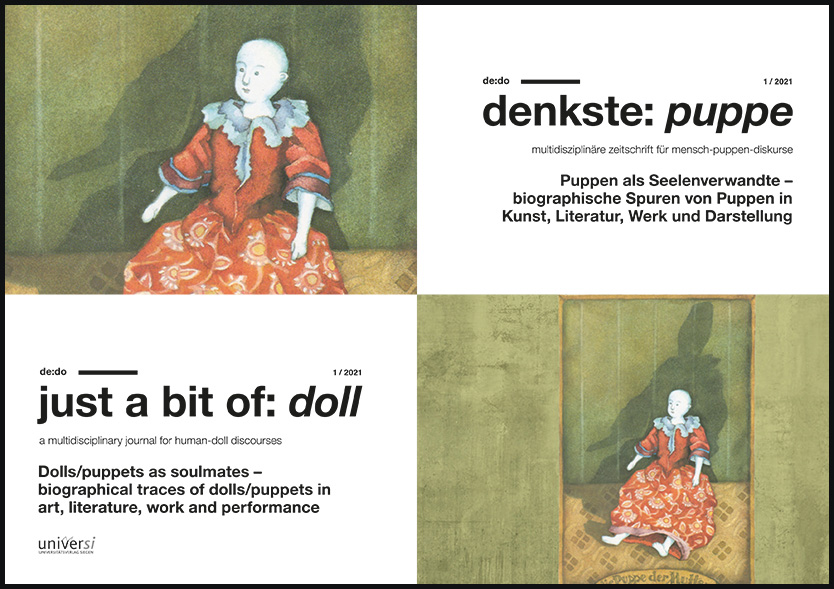Puppets/dolls in Johann Wolfgang Goethe's »Wilhelm Meister«-complex and Thomas Mann's »Buddenbrooks« in the tension between bourgeoisie and artistry
DOI:
https://doi.org/10.25819/dedo/105Keywords:
doll motif, puppet theatre, puppets, determination, diegesis, childhood experiencesAbstract
Puppet theater represents a widespread, though little researched motif in the ‘Bildungsroman’ with regard to its function within the diegesis. According to the reading of this paper, however, puppet theater is ascribed a determinant effect within the diegesis, and its sense-making character is examined more closely. To this end, questions are asked about the introduction of the doll and puppet theater motif in the novel, about parallels between the exemplary works, about reciprocal relationships - also to the life of the respective authors, Johann Wolfgang Goethe and Thomas Mann - as well as about the nature of the dolls/puppets and their metaphorical significance for the context of the novel.
Downloads
Published
How to Cite
Issue
Section
License
Copyright (c) 2021 Franziska Willbold

This work is licensed under a Creative Commons Attribution-ShareAlike 4.0 International License.



